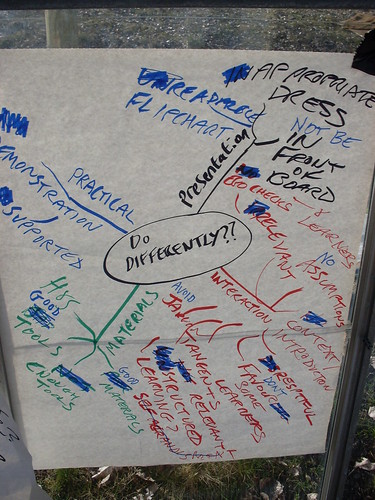 It’s been an interesting few weeks, with client work in China, Belgium and Frankfurt followed by two great days at the excellent KMUK conference.
It’s been an interesting few weeks, with client work in China, Belgium and Frankfurt followed by two great days at the excellent KMUK conference.The great thing about a conference is it always gives you time to reflect, things to reflect on, and different viewpoints from which to look at the world of Knowledge Management. At one point in the conference yesterday, after a first class presentation by Stuart Jackson of Actis, somebody from the audience asked the question “If you were starting your knowledge management work all over again, what would you do differently?”
This is a question that we use all the time in After Action Review and Retrospect, but it suddenly struck me that this was the first time I had heard this question asked at that particular conference. Then it also struck me that, in many of the client interactions I had been watching this week, this question had been asked only rarely (and mostly by me).
Many times people in the client teams, or people at the conference, would ask each other “what did you do, how did you do X, how did you respond to Y”, and what they would get in reply would be, effectively, history. The replies would help you understand what the team did, but not understand whether this is a good thing to do, and bad thing to do or a random thing to do. However when Stuart was asked “what would you do differently”, he couldn't answer with history; he had to answer with analysis.
History is not knowledge. It is analysis of history - it is reflection on history – that creates knowledge. We need to ask, not just “what did you do”, but also “with reflection, what would you do differently” if we are to get a true knowledge.
By the way, at the conference, Stewart’s answer was (and I paraphrase) “I would spend less time building content databases, and more time helping to generate value, and create new deals, for the business”.




No comments:
Post a Comment